
How to Tell the Differnce Between Gold and Fools Gold YouTube
1. Color. In general, the color of both pyrite and gold is yellow. The difference is that pyrite has a brassy yellow while gold is bright to golden yellow. The majority of gold found in nature is alloyed with silver; when the ratio of silver to gold is high, then the combination will show a whitish-yellow hue. 2.

How to Separate Fool's Gold From Real Gold (And Not Get Fooled!) Rock
Gold and pyrite have significantly different specific gravities. Gold is much more "dense" than pyrite, having a specific gravity of 19.1, and pyrite has a specific gravity of around 5. When comparing pieces of gold and pyrite of similar sizes, the gold piece should be much heavier. However, gold often comes in alloys.

Pyrite Vs Gold (Fools gold or real Gold?) YouTube
C) Ductility: Gold is very ductile, and a tiny piece of gold will bend or dent with pressure from a pin or a pointed piece of wood. Tiny pieces of pyrite will break or resist the pressure. D) Sectility: Small particles of gold can be cut with a sharp pocket knife. Small particles of pyrite cannot be cut.

Fools gold vs real gold YouTube
Weight: Fool's gold is less dense than real gold, with a specific gravity of 4.9-5.2, compared to real gold's specific gravity of 19.3. This difference in density can be observed by comparing the weight of a piece of fool's gold to an equally-sized piece of real gold; the real gold will feel significantly heavier.

Fool's Gold vs. Real Gold ID Card with Real Pyrite (Fool's Gold) Sci
Fool's gold, or pyrite, is made of worthless iron disulfide, but can contain tiny amounts of the real thing. Using an 'atom probe', research has uncovered a new way gold atoms can hide in.

Fool's Gold and Real Gold How to tell the difference
1. Color. The main difference you can tell between fool's gold and real gold is the color. You will notice that real gold is bright and golden yellow. However, fool's gold has a brassy yellow color that doesn't resemble real gold. On the other hand, when you find gold in nature, it is mostly alloyed with silver.
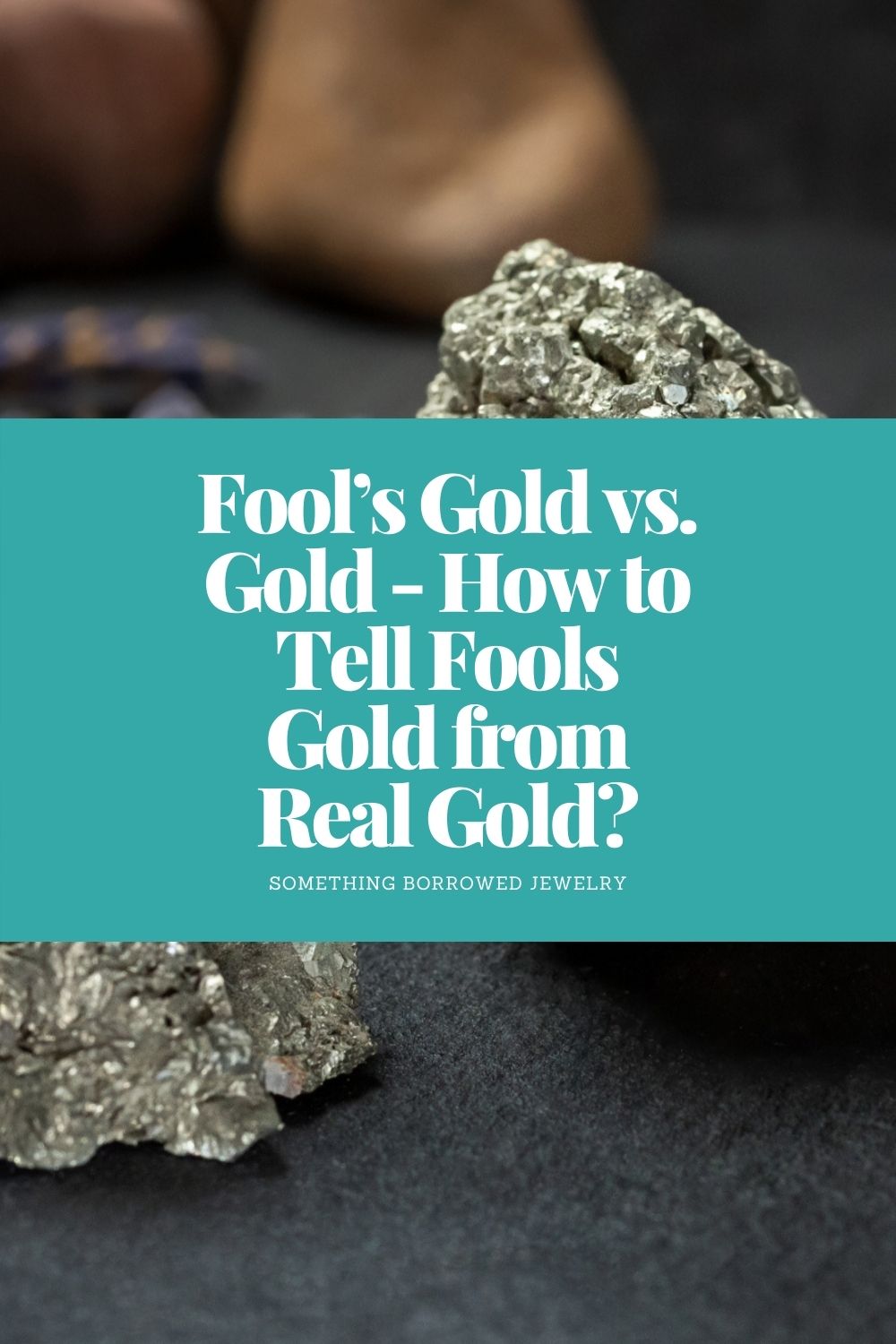
Fool’s Gold vs. Gold How to Tell Fools Gold from Real Gold?
Pyrite is called "Fool's Gold" because it resembles gold to the untrained eye. The United States Geological Survey (USGS) explains that "Fool's Gold can be one of three minerals. The most common mineral mistaken for gold is pyrite. Chalcopyrite may also appear gold-like, and weathered mica can mimic gold as well.

Spot the Difference Between Fool Gold and Real Gold! YouTube
4 WAYS TO DISTINGUISH FOOL'S GOLD FROM REAL GOLD. SHINE: When you're viewing fool's gold with the natural eye, it will glisten, not shine. The edges will look sharp and it may separate in layers. Gold shines at any angle, not just when the "light is right". HARDNESS: Get a piece of copper and try to scratch the copper with the gold.
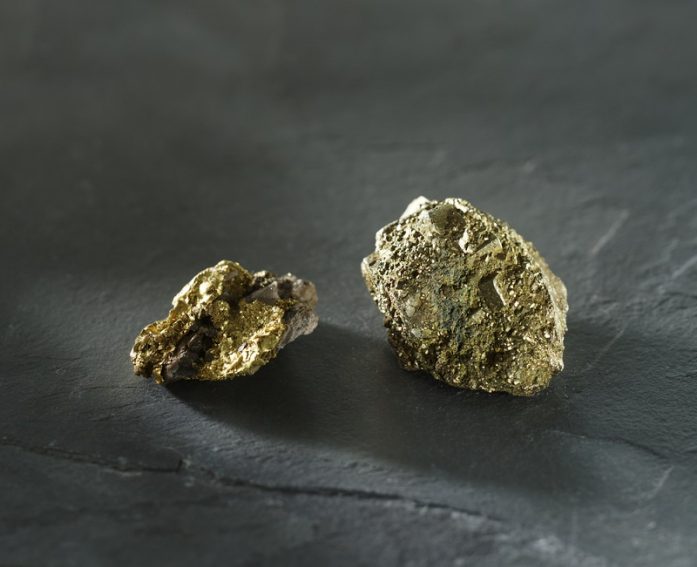
How to Separate Fool's Gold From Real Gold (And Not Get Fooled!) Rock
Fool's Gold can be one of three minerals. The most common mineral mistaken for gold is pyrite. Chalcopyrite may also appear gold-like, and weathered mica can mimic gold as well. Compared to actual gold, these minerals will flake, powder, or crumble when poked with a metal point, whereas gold will gouge or indent like soft lead. In addition, actual gold will leave a golden yellow streak when.

How to Separate Fool's Gold From Real Gold (And Not Get Fooled
Now when you scrape iron pyrite, it'll leave a really charcoal black streak, looks terrible, and that is distinctive from gold because gold, we'll leave a metallic brassy orange, yellow almost disappears on that. It'll show up best on the Black streak pad. And so that's the streak plate they call it.

Fools gold pyrite the difference between gold YouTube
Fool's Gold vs. Gold: How to Recognize Real Gold. Once you've seen gold dust and flakes, it is easy to recognize. But what about your first discovery? First, gold is heavier than any other material in your pan. It will be the last thing to move when gently moving your concentrates with water. Second, most placer gold is 18 karat or.

Fools Gold vs Real Gold Ultimate Jewelry Guide
Fool's gold, also known as iron pyrite, is a gold-colored mineral that is often mistaken for real gold. Pyrite is a brass-yellow mineral with a bright metallic luster. It has a chemical.
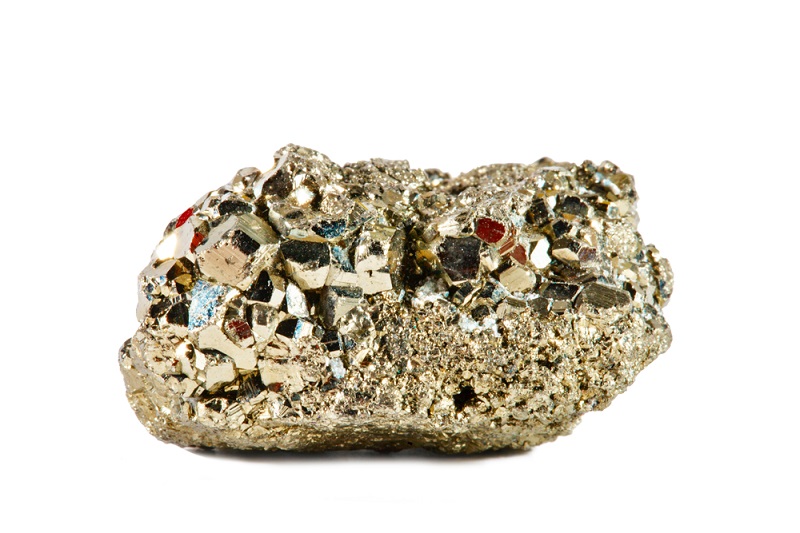
How to Separate Fool's Gold From Real Gold (And Not Get Fooled!) Rock
2. Discoloration. Another clue to look for when it comes to making sure your gold is authentic is the discoloration that can sometimes happen with fake gold but it can't happen to real ones. After a while, a green color tinge may appear on the surface of the gold, if it's not real 14K Italian gold.
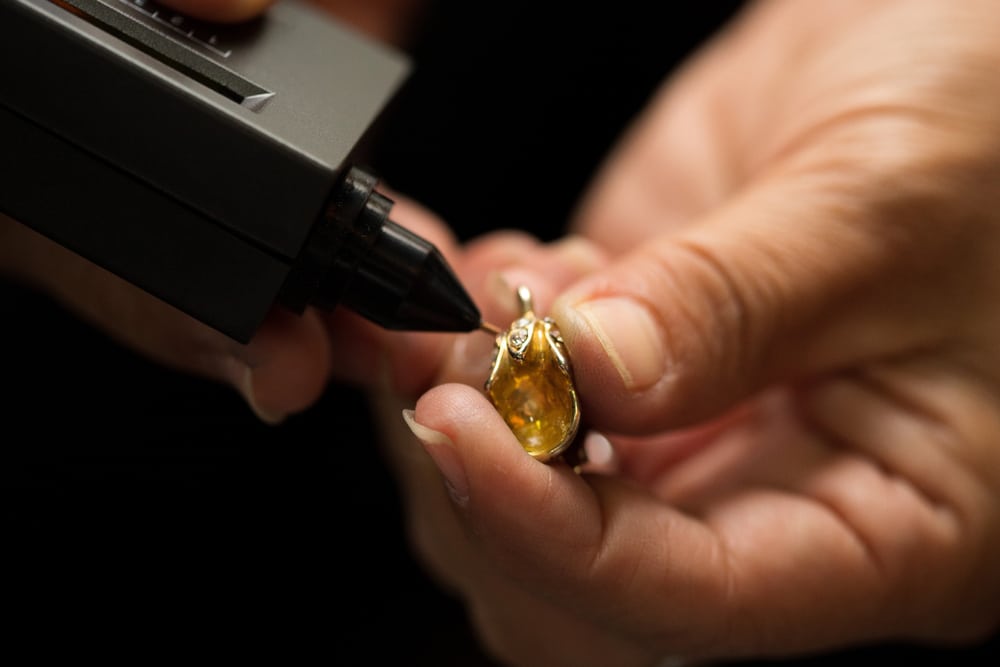
Fool’s Gold vs. Gold How to Tell Fools Gold from Real Gold?
Pyrite. If you want to determine the difference between gold and fool's gold more quickly, you should know their primary characteristics. First, pyrite is not a metal at all despite its metallic shine. The pyrite color is undoubtedly similar to gold, but it usually has a more brass-yellow shade. The most dominant feature is its crystalline.

Gold vs Fool's Gold How to Tell the Difference YouTube
Fool's gold is made up of crystals and has sharp edges, while real gold is a metal with a smoother texture and rounder edges. If you look closely at the piece and see that its structure consists of what looks like small and sharp cubes, then it is fool's gold. Pay attention to the structure of fool's gold - pyrite crystals have sharp edges.
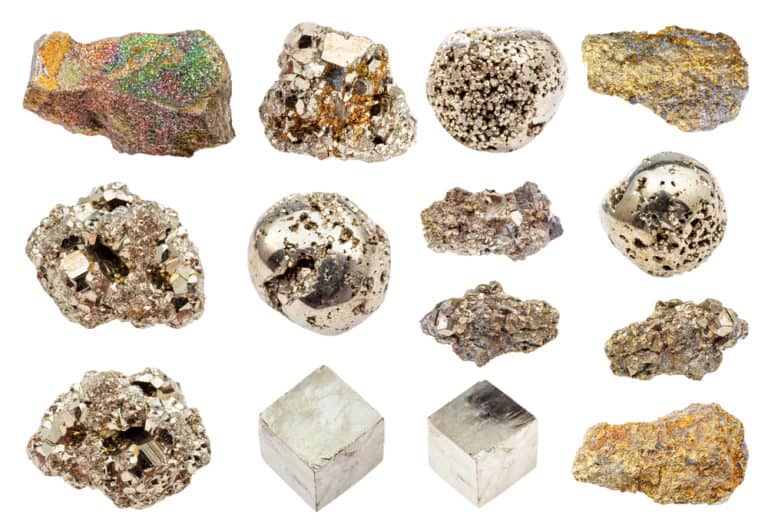
Fool’s Gold vs. Gold How to Tell Fools Gold from Real Gold?
As noted earlier, real gold is metallic, while fool's gold is a mineral. With that said, the easiest way to tell the two apart is by looking at the shape. As a metal, real gold usually has a smooth texture and round edges. Pyrite, on the other hand, has a crystalline structure, giving it sharper edges and a bit of a rough texture to it.